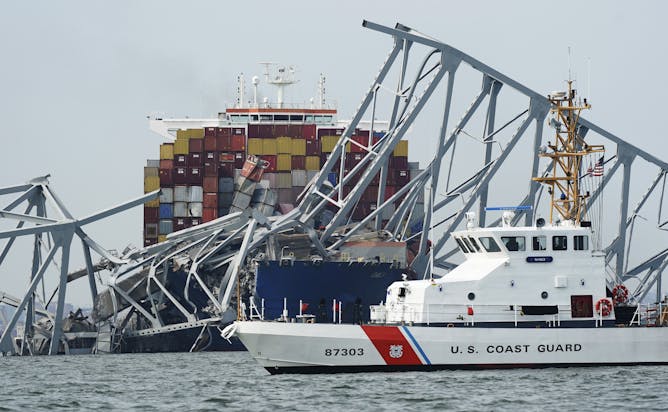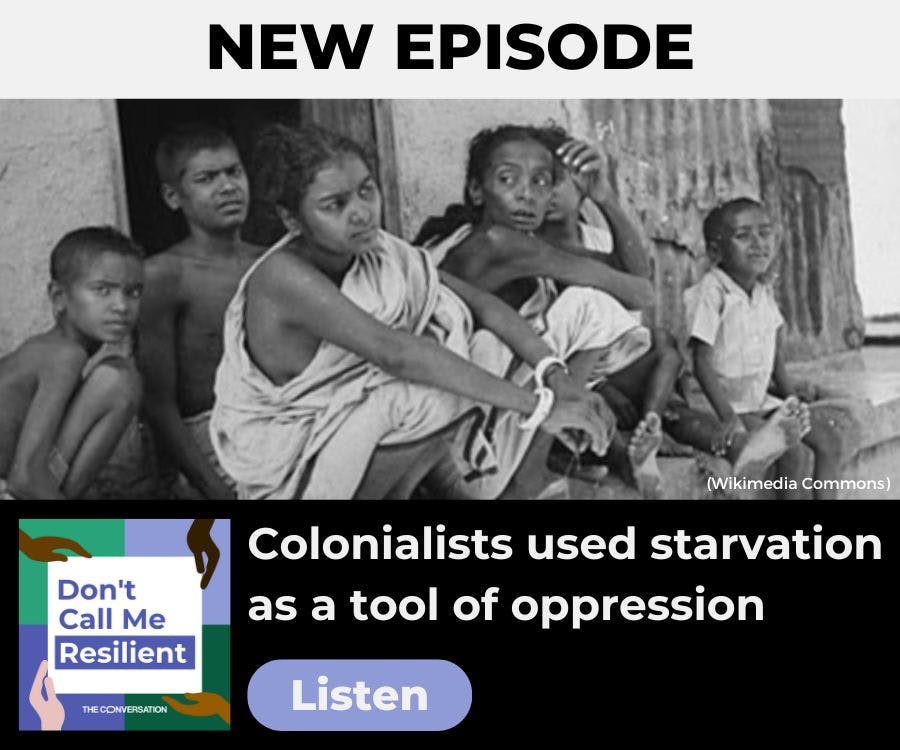|
|
|
|
In today’s Don’t Call Me Resilient podcast episode, we continue the conversation we started last week about the use of forced famine as a weapon of war. For centuries, starvation has been effectively used by colonial powers to control populations, to acquire land and the wealth that comes with that. We spoke to two famine scholars about two historic examples – the decimation of Indigenous populations in the Plains, North America in a manipulative attempt by “the Crown” to take land – and the 1943 famine in Bengal, India that took three million lives. Through these two examples, we look at how starvation has been used as a tool in the colonial
“playbook.”
Our guests made connections to the devastating conditions in Gaza. Janam Mukherjee, Associate Professor of History at Toronto Metropolitan University, and the author of Hungry Bengal: War, Famine and the End of Empire, said: “I believe that famine defines a certain category of people who are beyond the pale of our humanity, who are outlined and then marked as outside of human life itself.” James Daschuk, Associate Professor in the Faculty of Kinesiology and Health Studies at the University of Regina, and the author of Clearing the Plains: Disease, Politics of Starvation and the Loss of Indigenous Life, said: “There are people who are in imminent danger of starving to death. That’s not an absence of food. That is the organizing principle. No matter what the geopolitical implications are, children should not be starved.”
We also discuss the intergenerational impacts of food insecurity. Both of today’s guests are presenting at the “Global Perspectives on Heritages of Hunger” conference next week in Toronto. I encourage you to listen in: both scholars are fascinating and concise and generous in the sharing of their expertise.
Also today:
All the best.
|

|
Vinita Srivastava
Host + Producer, Don't Call Me Resilient
|
|

A family living through the Bengal famine, a time when three million people died due to starvation,1943.
(Wikimedia Commons)
Vinita Srivastava, The Conversation; Ateqah Khaki, The Conversation
For centuries, colonial powers have used starvation as a tool to control Indigenous populations and take over their land and wealth. A look back at two historic examples on two different continents.
|

A demonstrator waves a Haitian flag during protests calling for the resignation of Prime Minister Ariel Henry in Port-au-Prince on March 1, 2024. The current crisis demands both time, and a new approach from the international community.
(AP Photo/Odelyn Joseph)
Emmanuel Sael, École nationale d'administration publique (ENAP); Jean-François Savard, École nationale d'administration publique (ENAP)
Haiti will be able to emerge from the crisis it is in if it has a strong public administration and co-ordinated international aid from countries that respect human rights.
|

Eating disorders are on the rise in youth, with research showing that health-care visits for eating disorders have doubled since before the COVID-19 pandemic.
(Shutterstock)
Amelia Austin, University of Calgary; Gina Dimitropoulos, University of Calgary; Sheri Madigan, University of Calgary; Tracy Vaillancourt, L’Université d’Ottawa/University of Ottawa
Parents and other supportive adults can learn to recognize young people’s symptoms of disordered eating, which is a spectrum of unhealthy eating patterns and behaviour.
|

A pair of North Atlantic right whales interact at the surface of Cape Cod Bay, in Massachusetts, in March, 2023. Global warming is rapidly acidifying the oceans with dire implications for marine life.
(AP Photo/Robert F. Bukaty, NOAA permit #21371)
Charles-Francois de Lannoy, McMaster University; Bassel A. Abdelkader, McMaster University; Jocelyn Riet, University of Toronto
Global warming is making the oceans more acidic. Our work aims to design realistic systems to reduce this acidity, and remove carbon from the atmosphere in the process.
|

Alberta’s provincial flag flies on a flag pole in Ottawa, in July 2020.
THE CANADIAN PRESS/Adrian Wyld
Maren Aukerman, University of Calgary
Alberta’s new social studies curriculum misses the mark on child development, lacks adequate opportunities for critical thinking and neglects teaching about colonization.
|

A Coast Guard cutter passes the cargo ship Dali that collided with the Francis Scott Key Bridge in Baltimore, Md. on March 26.
(AP Photo/Steve Helber)
Jack L. Rozdilsky, York University, Canada
A cargo ship leaving the Port of Baltimore collided with a bridge in a technological disaster that may have claimed the lives of up to six maintenance workers on the bridge at the time.
|
Podcasts
|
-
Mend Mariwany, The Conversation
Maxim Samson speaks to The Conversation Weekly podcast about the hidden lines that explain variations in everything from access to education to animal species
|
|
Health
|
-
Grace Marie Jones, Touro University
A higher consumption of sugar leads to worse health outcomes, so we need to be mindful of the added sugar we eat.
|
|
Politics
|
-
Shariq Siddiqui, Indiana University
During the month-long period of fasting, the obligation of zakat takes on heightened significance.
|
|
Science + Tech
|
-
Douglas Vakoch, California Institute of Integral Studies
Europa Clipper will contain a plaque that celebrates humanity’s relationship with water and a decades-old tradition of searching for life outside Earth.
|
|
|
|
| |
| |
| |

|
| |
| |
| |
| |
| |
| |
|
|
|
|
|
|
|